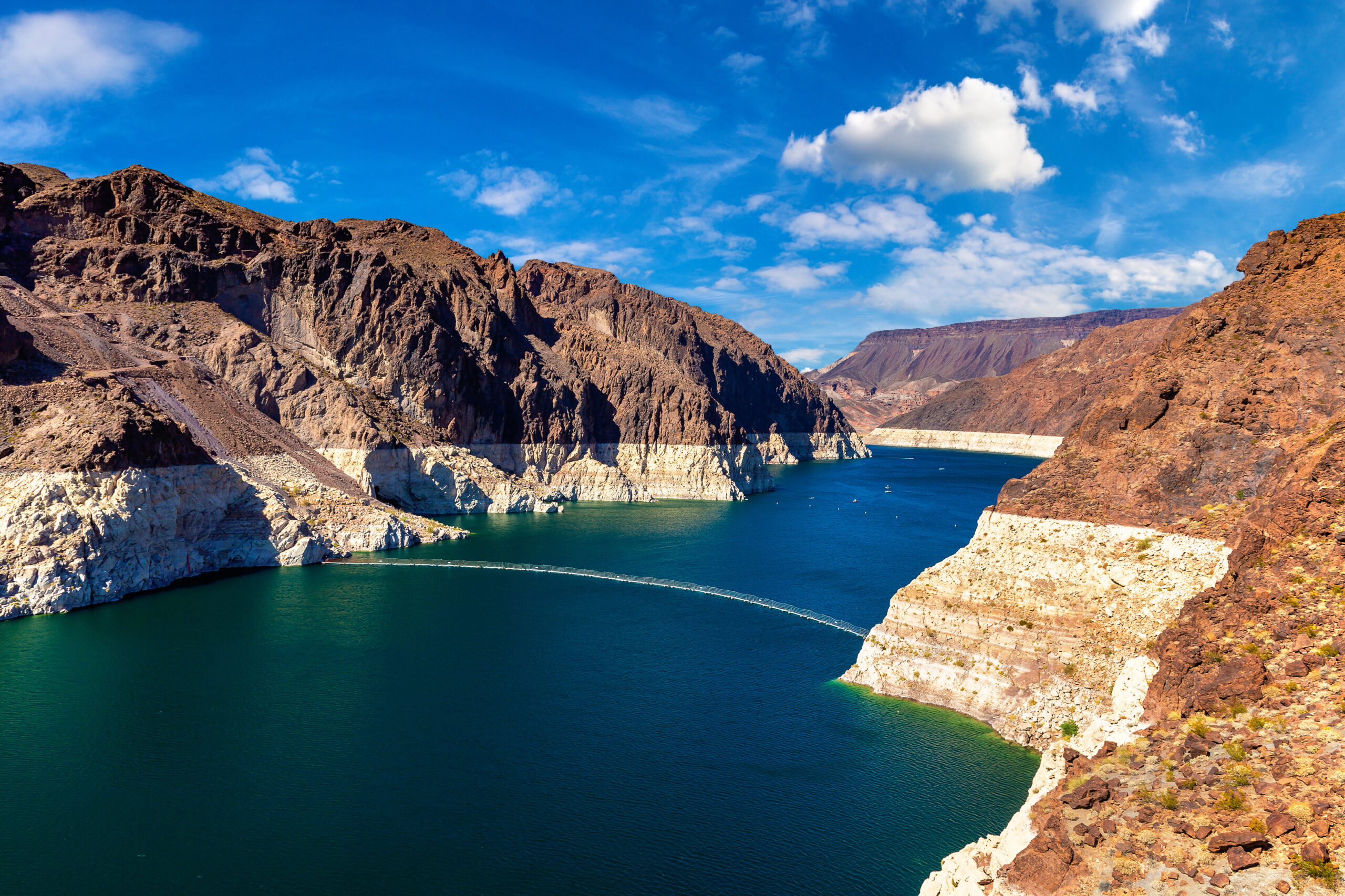How Lake Mead’s Water Levels Compare With Historic Highs
Lake Mead’s water levels are 16 feet higher than they were when the reservoir battled critically low levels in the fall of 2022, but compared with the reservoir’s highest point, in 1983, it still has a long way to go for recovery.
After years of drought, Lake Mead, which is in Nevada and Arizona, plunged to critically low levels in the summer of 2022. Above-average precipitation and snowmelt that winter helped remedy those levels, which continued to improve throughout 2023. Now, roughly two years later, Lake Mead looks to be in a better position for the new water year, which began October 1.
On Tuesday, Lake Mead’s water levels were at 1,061 feet. Although the lake is in a better state than this time two years ago, it is still at its second-lowest point over the past five years, with water levels higher only than those in 2022. The lake is roughly 4 feet lower than this time in 2023 and more than 20 feet lower than this time in 2019.
bloodua/Getty
The lake’s water levels dipped a little in late October but have largely remained steady since June.
Lake Mead began filling in 1935 after the Hoover Dam was built. Full pool occurs when lake levels reach 1,229 feet. The lake hit its highest point, at 1,225.44 feet, in July 1983, less than 4 feet below full capacity.
After enduring fluctuations during the 41 years since 1983, Lake Mead’s water levels have dropped 164 feet below that point.
The biggest changes to the lake’s water levels are caused by Lake Powell water releases upstream. Lake Powell is greatly affected by the annual weather, Colby Pellegrino, the deputy general manager for the Southern Nevada Water Authority, previously told Newsweek, which in turn affects Lake Mead.
Newsweek reached out to the U.S. Bureau of Reclamation, which manages Lakes Mead and Powell, by email for comment.
Pellegrino said she expects the coming water year to be a “pretty good year” for Lake Mead. However, some experts doubt that the lake will ever see a full recovery, unless agricultural fields across the Colorado River Basin are fallowed and steeper water cuts are imposed on the seven states sourcing their water from the Colorado River, which runs through Lake Mead.
Despite its improvement over 2022 levels, proof of Lake Mead’s falling levels is evidenced by the thick “bathtub ring” of calcium carbonate that bleaches the lake’s rocks, previously submerged when the lake was at full pool.
Based on past data, Lake Mead water levels typically begin improving at the beginning of the water year. Last January, the lake’s water levels improved at a rate not seen since 2019, but the lake still has a long way to go before it has recovered completely.








